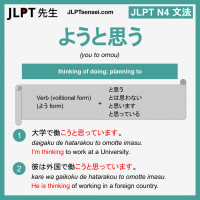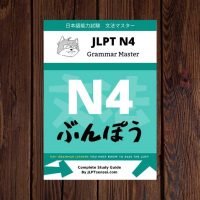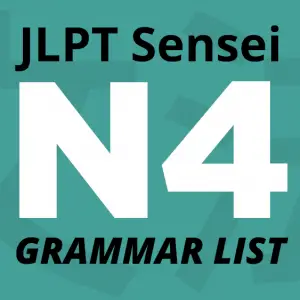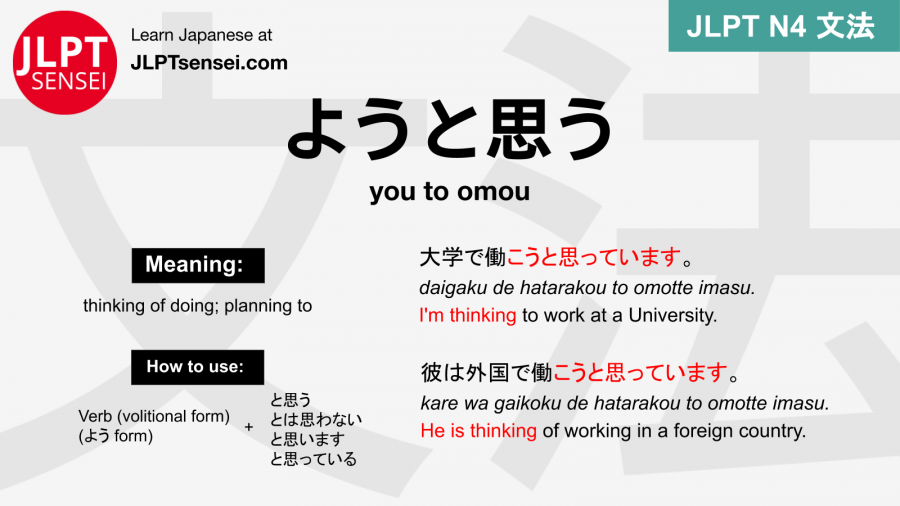Aprende gramática del idioma Japonés: ようと思う 【ようとおもう】(you to omou). Significado: thinking of doing; planning to~.
This can be used to describe your own thoughts or someone else’s thoughts.
It must follow a verb in volitional form. If you don’t know how how to conjugate, see the lesson for 意向形 (ikou kei) Volitional Form.
The following と思う (to omou) can also be conjugated like a regular verb.
- ようと思います (you to omoimasu) more formal
- ようと思っている (you to omotteiru) I am thinking to do~
When used with a negative conjugation, it means I would never think of~.
- ようとは思わない (you to omowanai) I would not think to~

Click the image to download the flashcard.
Download all N4 grammar flashcards.

Download our complete
JLPT N4 Grammar Master E-book.
Access ALL extra downloads, ebooks, and study guides by supporting JLPT Sensei on Patreon.
ようと思う - Oraciones de ejemplos 例文
Cada oración de ejemplo incluye ayudas como la lectura (hiragana) en Japónes, la lectura en romaji, y la traducción en Español.
Da clic en el siguiente botón rojo para alternar todas las ayudas, o puedes dar clic en los botones individuales para mostrar únicamente las que desees ver.
Ejemplo #1
日本に留学しようと思っています。
Ejemplo #2
大学で働こうと思っています。
Ejemplo #3
今度の休みに海へ行こうと思う。
Ejemplo #4
子どもができたからタバコを辞めようと思う。
Ejemplo #5
今から書店へ行こうと思っています。
Ejemplo #6
彼は外国で働こうと思っています。
Ejemplo #7
私はそこに行こうとは思わない。
Ejemplo #8
僕は出かけようと思っているところにお客さんが来た。
Ejemplo #9
私はこの話を会議で紹介しようと思っている。
Ejemplo #10
今の給料が低いからもっと高い給料の仕事を探そうと思っています。


